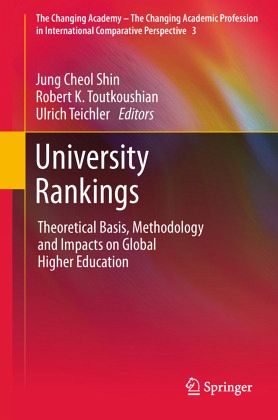
University Rankings
Theoretical Basis, Methodology and Impacts on Global Higher Education
Herausgegeben: Shin, Jung Cheol; Toutkoushian, Robert K.; Teichler, Ulrich
Versandkostenfrei!
Versandfertig in 6-10 Tagen
76,99 €
inkl. MwSt.

PAYBACK Punkte
38 °P sammeln!
This ground-breaking and exhaustive analysis of university ranking surveys scrutinizes their theoretical bases, methodological issues, societal impact, and policy implications, providing readers with a deep understanding of these controversial comparators. The authors propose that university rankings are misused by policymakers and institutional leaders alike. They assert that these interested parties overlook the highly problematic internal logic of ranking methodologies even as they obsess over the surveys' assessment of their status. The result is that institutions suffer from short-termism...
This ground-breaking and exhaustive analysis of university ranking surveys scrutinizes their theoretical bases, methodological issues, societal impact, and policy implications, providing readers with a deep understanding of these controversial comparators. The authors propose that university rankings are misused by policymakers and institutional leaders alike. They assert that these interested parties overlook the highly problematic internal logic of ranking methodologies even as they obsess over the surveys' assessment of their status. The result is that institutions suffer from short-termism, realigning their resources to maximize their relative rankings. While rankings are widely used in policy and academic discussions, this is the first book to explore the theoretical and methodological issues of ranking itself. It is a welcome contribution to an often highly charged debate. Far from showing how to manipulate the system, this collection of work by key researchers aims to enlighten interested parties.














